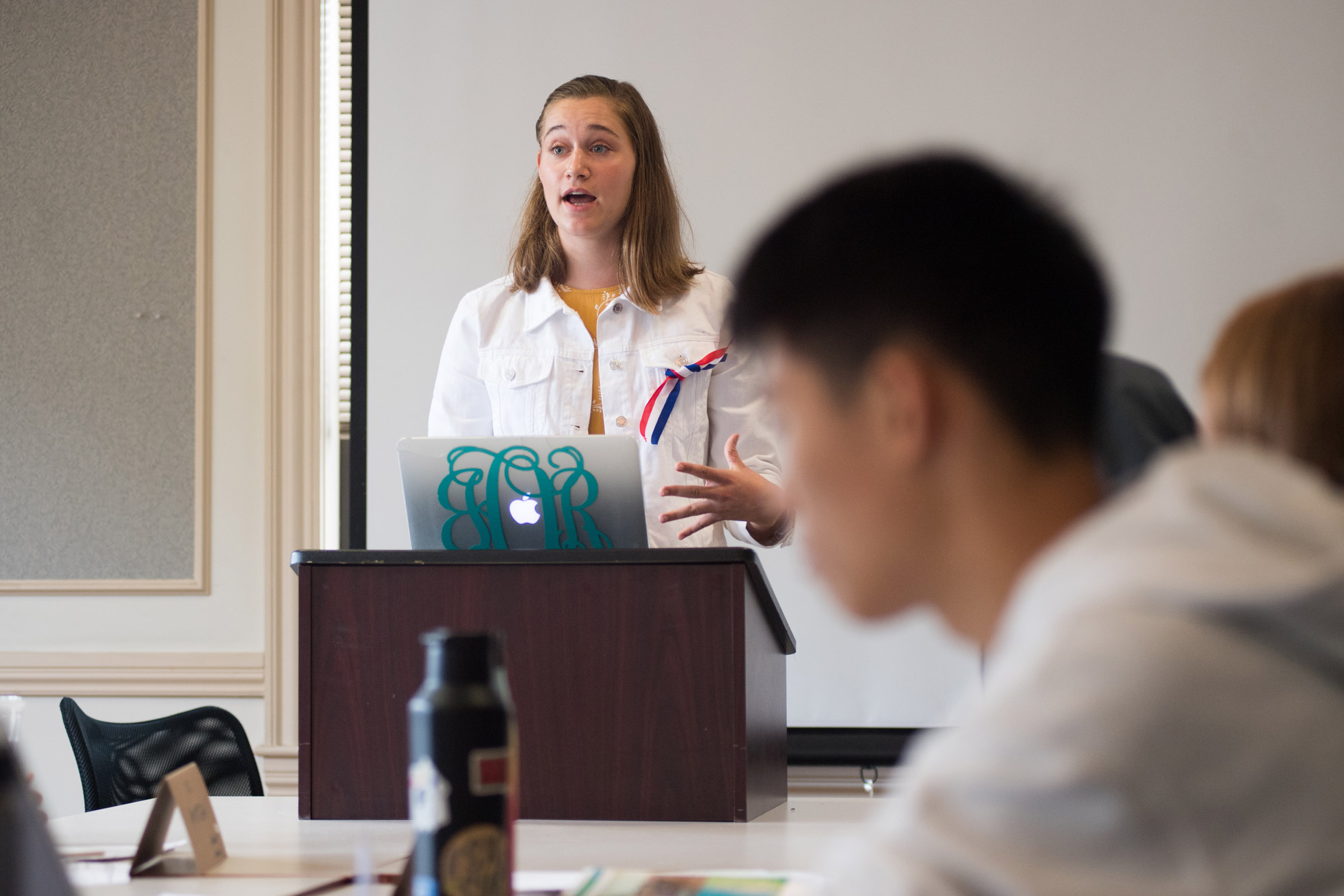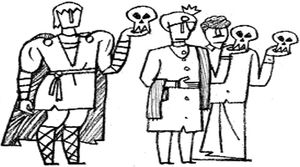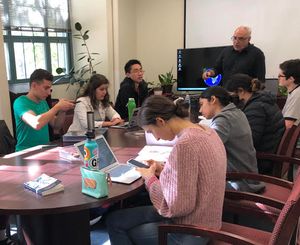 In the first-year humanities, Core students study works primarily written by people who have been dead for two thousand years or more. It is only natural to wonder whether those peoples ideas are still relevant who cares what Thucydides said? Well, we care what Thucydides said, and we think you should too. Nowadays, its hard to miss that everyone is talking about freedom of speech, democracy, free association, political power plays all issues which seem distinctly modern. Except, of course, that they aren't! Take a look at the following collection of quotes:
In the first-year humanities, Core students study works primarily written by people who have been dead for two thousand years or more. It is only natural to wonder whether those peoples ideas are still relevant who cares what Thucydides said? Well, we care what Thucydides said, and we think you should too. Nowadays, its hard to miss that everyone is talking about freedom of speech, democracy, free association, political power plays all issues which seem distinctly modern. Except, of course, that they aren't! Take a look at the following collection of quotes:
We both know that decisions about justice are made in human discussions only when both sides are under equal compulsion; but when one side is stronger, it gets as much as it can, and the weak must accept that. Thuc. Melian Dialogue 89
Neither our principles nor our actions are contrary to what men believe about the gods, or would want for themselves. Nature always compels gods (we believe) and men (we are certain) to rule over anyone they can control. We did not make this law, and we were not the first to follow it; but we will take it as we found it and leave it to posterity forever, because we know that you would do the same if you had our power, and so would anyone else. Ibid 104 / 105
A good citizen should not go about terrifying those who speak against him, but should try to look better in a fair debate. Thuc. Mytilenean Debate 42
It is a hard matter to speak in due measure when there is no firm consensus about the truth. Thuc. Pericles Funeral Oration 35
All things said by one of those old dead guys, but Im sure the relevance isnt lost on any of you. Modern thinkers, too, deal with these issues; I encourage you to take a moment to think about how these quotations from Karl Popper do or dont articulate with the above from Thucydides.
Less well known is the paradox of tolerance: Unlimited tolerance must lead to the disappearance of tolerance. If we extend unlimited tolerance even to those who are intolerant, if we are not prepared to defend a tolerant society against the onslaught of the intolerant, then the tolerant will be destroyed, and tolerance with them. In this formulation, I do not imply, for instance, that we should always suppress the utterance of intolerant philosophies; as long as we can counter them by rational argument and keep them in check by public opinion, suppression would certainly be most unwise. But we should claim the right even to suppress them, for it may easily turn out that they are not prepared to meet us on the level of rational argument, but begin by denouncing all argument; they may forbid their followers to listen to anything as deceptive as rational argument, and teach them to answer arguments by the use of their fists. We should therefore claim, in the name of tolerance, the right not to tolerate the intolerant. Popper, The Open Society and its Enemies 226
All these paradoxes can be easily avoided if we frame our political demands in some such manner as this. We demand a government that rules according to the principles of equalitarianism and protectionism; that tolerates all who are prepared to reciprocate, i.e. who are tolerant ; that is controlled by, and accountable to, the public. Ibid 226
Sheri Berman, meanwhile, wrote about the ways that the work of Tocqueville and the Neo-Tocquevillean Robert Putnam are still relevant today, and the danger in abusing civic associations. Tocqueville wrote about the importance of voluntary civic associations to any healthy democracy, but Putnam and Berman push back on that, stating that civic associations are not always good their potential to do good exists only insofar as they foster sturdy norms of generalized reciprocity (Putnam Bowling Alone fn 2) and are not organized around vertical bonds of authority and dependency (Berman 1997).
Berman explores the example of Weimar Republic Germany and the voluntary associations they had they always had leadership positions in their civic groups, sure, but for the most part those leadership positions weren't abused. That is, until the NSDAP (or, the Nazi Party) started to infiltrate those leadership positions, exploit that power, enforce social stratification, and, well, elect the Nazis to power.
While I feel that these quotes and concepts are all interesting to look at together in light of present-day issues, Im not claiming that these are all tightly interrelated. I leave the synthesis of all this stuff to you, dear reader, and ask only that you give it thought along with me.



 In the first-year humanities, Core students study works primarily written by people who have been dead for two thousand years or more. It is only natural to wonder whether those peoples ideas are still relevant who cares what Thucydides said? Well, we care what Thucydides said, and we think you should too. Nowadays, its
In the first-year humanities, Core students study works primarily written by people who have been dead for two thousand years or more. It is only natural to wonder whether those peoples ideas are still relevant who cares what Thucydides said? Well, we care what Thucydides said, and we think you should too. Nowadays, its 

